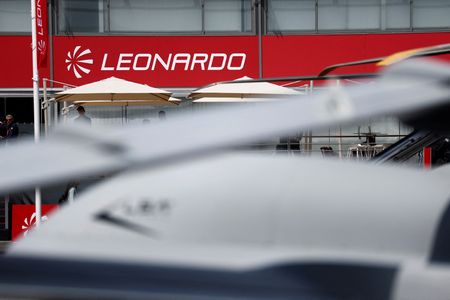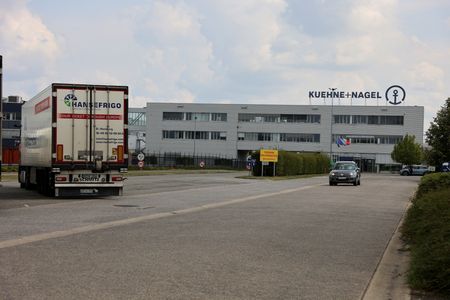By Amy-Jo Crowley, Mathieu Rosemain and Tim Hepher
LONDON/PARIS/ROME (Reuters) – Europe’s aerospace groups Leonardo, Thales and Airbus have redoubled efforts to combine their satellite businesses into a 10 billion-euro ($11.7 billion), French-headquartered joint venture and are working towards hammering out an initial agreement in coming weeks, sources close to the matter said.
Under “Project Bromo,” the three companies plan to set up a satellite manufacturing company to compete with rivals from China and the U.S., including Elon Musk’s Starlink.
Talks have regained momentum after a rough period in the summer when the parties could not agree on governance and valuation, stalling an agreement, three sources said. The talks looked at risk of collapsing, according to another source.
A memorandum of understanding could now be signed by the end of September, though the timing could slip, the sources said.
Political signals so far have been encouraging, but details of ownership and governance must be signed by nations involved, three of the sources said. The venture is expected to include dedicated entities to protect sensitive national interests.
An agreement is not guaranteed, and talks could still fall apart, the sources warned.
The exact holdings of the new space venture are still being negotiated, the sources said, adding that ownership of the venture could be split roughly in three equal parts.
The new satellite venture value of about 10 billion euros reflects the units’ combined revenue of 6 billion-6.5 billion euros and sector peers, which trade at 1.5-3 times revenue, the two sources said.
Leonardo declined to comment.
Airbus referred to comments from CEO Guillaume Faury, who said earlier this week the companies were moving towards a deal and talking to European governments. “We are on the way,” he told a group of reporters in Washington.
“We have started also to communicate with all stakeholders and we have started to try for anti-trust (approval), so we are in the process of doing it,” Faury added.
Thales said: “No agreement has been reached at this stage. We are continuing our work. Any further comment would be premature.”
Preliminary attempts over the past decade to create a European satellite champion foundered partly on anti-trust concerns and national rivalries.
But the dramatic rise of Starlink and a shift in the market towards cheaper, low-orbit satellites have increased pressure on Europe’s leading satellite manufacturers to combine assets or be pushed out of the market.
Talks to reshape the industry’s structure are part of a broader attempt by Europe to boost sovereign capabilities as geopolitical tensions have mounted and U.S. policies have shifted.
All three companies have minority government shareholders and analysts say any agreement involving sensitive assets and technology would need political approval.
A person familiar with the matter said the venture was likely to be based in Toulouse, France, where Airbus is based, while noting such details were subject to final negotiations.
Decisions on where to place corporate power centres are often a sensitive issue in Europe’s fragmented aerospace sector.
Italy’s industry ministry was not immediately available for comment. Germany’s defense ministry did not immediately respond. France’s state shareholding agency APE declined to comment.
A potential deal would create a standalone European satellite champion, based broadly on missile maker MBDA, owned by Airbus, Leonardo and BAE Systems.
MBDA was founded in 2001 through the merger of Anglo-French Matra BAe Dynamics, France’s Aerospatiale Matra Missiles and missile activities of Anglo-Italian Alenia Marconi Systems.
Like MBDA, the new venture will include a mixture of unified cross-border activities with separate entities designed to protect sensitive national interests, the sources said.
($1 = 0.8536 euros)
(Reporting by Amy-Jo Crowley, Tim Hepher and Mathieu Rosemain; additional reporting by Giulia Segreti, Elvira Pollina, Giuseppe Fonte and Markus Wacket. Editing by Elisa Martinuzzi and David Gregorio)












